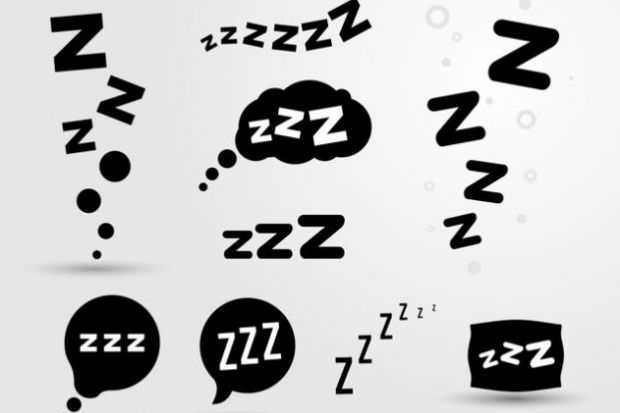It is widely recognised that lack of sleep can affect academic performance, but new research provides far more detail on the scale and nature of the link.
Jeffrey Grossman, professor of materials science and engineering at the Massachusetts Institute of Technology, gave Fitbits – wrist-worn devices that can track a person’s activity throughout the day and night – to 100 students in his introductory class on solid-state chemistry over a whole semester. He then tracked the data against their grades, based on nine quizzes, three mid-term examinations and a final examination. The results have now been published in a paper in the Science of Learning journal, written by postdoc Kana Okano, Professor Grossman and three others.
Along with a very striking link between the average amount of sleep a student got and their grades, the paper demonstrated a number of more surprising things. The first is that there was no point in just making an effort to sleep well the day before an exam. “It turns out this does not correlate at all with test performance,” said Professor Grossman. “Instead, it’s the sleep you get during the days when learning is happening that matters most.”
Equally unexpected was the fact that there seemed to be a sort of cut-off point around when students went to bed. For those who got, say, seven hours’ sleep, explained Professor Grossman, it made no difference to their performance whether they “go to bed at 10pm, or at 12am, or at 1am…but if you go to bed after 2am, your performance starts to go down even if you get the same seven hours. So, quantity isn’t everything.”
The research also shed light on something Professor Grossman has long noticed in his classes: women tended to get better grades than men. While earlier studies on gendered differences in academic performance have tended to focus on factors such as “self-discipline”, the new data, he said, showed that “if we correct for sleep, men and women do the same in class. So sleep could be the explanation for the gender difference in our class.” As a result of this finding, the paper suggests that, although sleep is important for everyone, “it may be especially important to encourage better sleep habits in male students”.
Register to continue
Why register?
- Registration is free and only takes a moment
- Once registered, you can read 3 articles a month
- Sign up for our newsletter
Subscribe
Or subscribe for unlimited access to:
- Unlimited access to news, views, insights & reviews
- Digital editions
- Digital access to THE’s university and college rankings analysis
Already registered or a current subscriber? Login







